Almost dropped out of school because of pity for parents not having enough money to pay tuition
Her teenage years were the years when the US bombed the North, students went to school carrying stretchers, first aid kits, hoes to dig trenches and straw hats to protect against cluster bombs and shrapnel. The country was already in need at that time, and the family's situation was even more difficult. The sisters, who were made of chicken and duck eggs, gradually grew up in an increasingly poor family, protecting each other in a warm home where hunger and cold were always lurking, sharing food with each other and not dropping out of school.
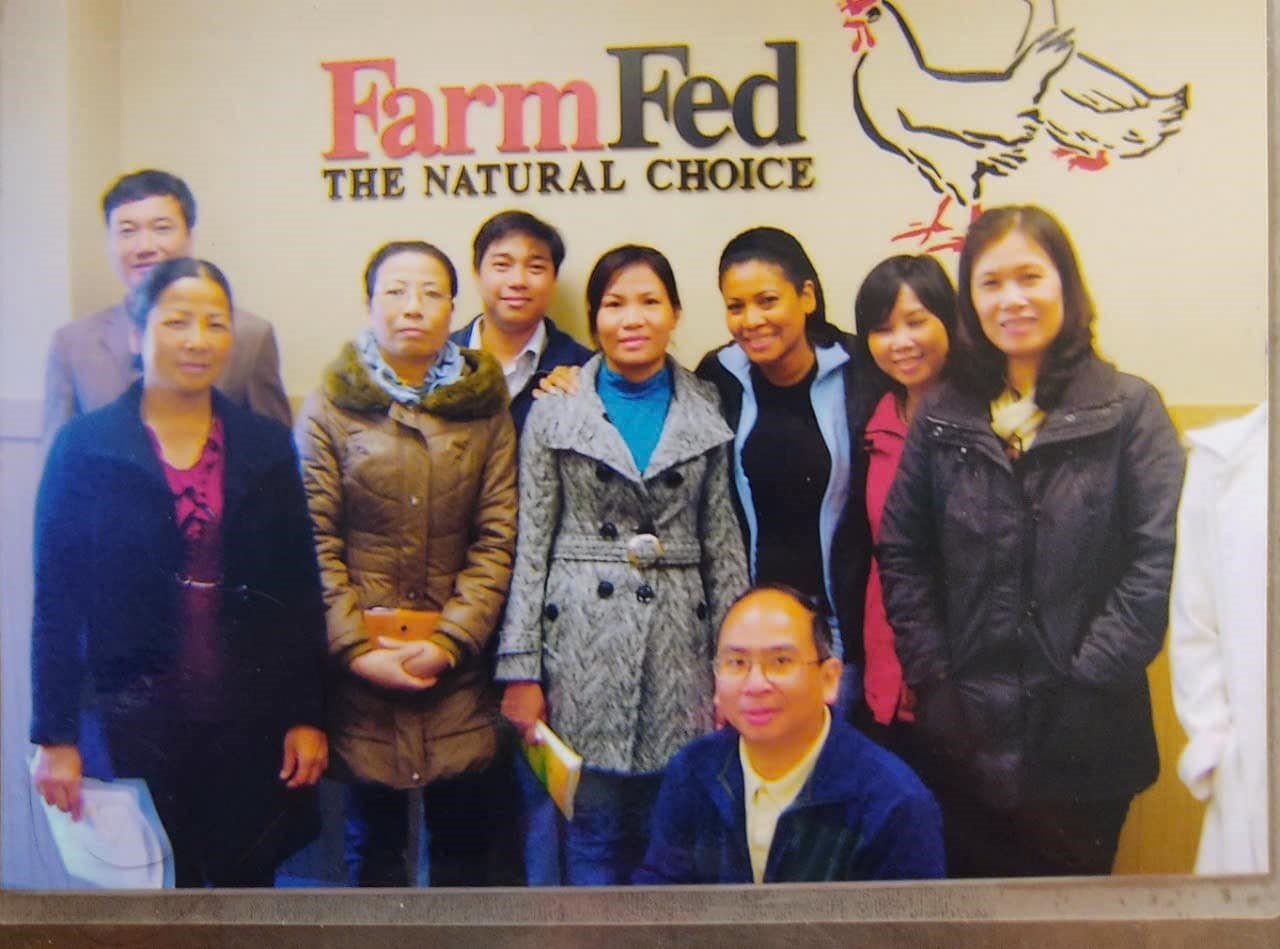
Dr. Nguyen Thi Minh and colleagues monitor food safety and hygiene in Canada (female on the far left)
The girl Nguyen Thi Minh (Duc Thuong, Hoai Duc, Hanoi ) entered high school at the age of 13 and a half (10-year system), always haunted by the fear of dropping out of school because of poverty. A family of 9 mouths to feed, rice was scarce, war bombs and bullets were overhead, the young men in the village grew up and went to the front, the only ones left in the village to work in the fields were women, old grandparents and children.
Despite the hardships and poverty, she was always passionate about studying. She loved Russian from the moment she first learned it. She came up with a way to learn new words that people often use now as "Flashcards". On one side she wrote the Russian word, on the other side she wrote the Vietnamese meaning. Every day she set herself the task of memorizing 10 words.
Being persistent and uncompromising with herself, determined to learn 300 words every month, helped her become a "star" in learning foreign languages at school. When her friends couldn't remember, they asked her to review the lesson. Thanks to that, she became the "dictionary tree" of the class. Anytime, whether working in the fields, on the way from home to school, or cooking, sweeping the house... was the time to study and do homework in her head.
By the middle of grade 9, the young girl thought that a poor girl going to higher education was a wasteful use of her parents' efforts. At that time, going to high school was the dream of many children in the countryside. Every time the tuition fee was due, children were worried about whether their mothers could borrow money to pay for their tuition. Their parents were already worried about their siblings going hungry one day and having enough to eat the next.
Feeling guilty and after many days of thinking, the girl decided to go to the school office to withdraw her transcript and drop out of school. Drop out! It was a very painful decision.
Fortunately, the teacher came to her house to talk to her parents. After that, the school refused to withdraw her transcript. She continued to study until she finished high school. After graduating from high school in 1971, Ms. Minh became even more aware that she should not go to school anymore, should not abuse her parents' efforts, and should know how to love her younger siblings. She naturally did not dare to think about taking the university entrance exam, so she did not study for it. From then on, she almost accepted her fate as a country girl, working hard in the fields, although the fire of learning was still burning.
One morning in 1971, right after finishing a bowl of cold rice, preparing to take the raft to the field to drain water, her classmates rushed over, each of them carrying books, bags of clothes, and food bags for several days. They came to invite her to take the university entrance exam! The fire of learning in her heart suddenly flared up again, she felt sorry for herself, leaned the raft against the porch, covered her face and cried. Her father must have felt sorry for her at that time, he told her to put away the raft, prepare her belongings, and told her mother to prepare a few bowls of rice and some money for the university entrance exam.
That year she passed the entrance exam to the University of Agriculture I, ranking 9th in the entire class. But for some reason, the local authorities did not allow her to go. At that time, the local authorities had the right to decide whether or not to send students to university.
Her friends entered school one after another, and they were all excited to send letters home. In addition to telling their own stories, they did not forget to encourage her to continue her studies. Not knowing what path to take other than being a village girl, she thought she should focus on helping her parents support the family economy . For the next 4 years, she did not take the university entrance exam, nor did she get married early like her peers in the village.
One day, she was surprised to receive a package in the mail, which contained textbooks for 3 subjects: Math, Chemistry, Biology, and a letter written by her class monitor: the teacher told her friends to collect and send them to her to review for the exam. She was so touched that she sat alone crying because of her ironic situation, but she was also happy because when her toenails were stained yellow with mud, her appearance was dyed with the color of a village girl, the teacher and her friends still remembered her and still encouraged her to go to school.
So, she decided not to let down her teachers and friends, and studied while working. From the role of an accountant for a production team in the countryside, she went to harvest rice during the day, and came home at night to thresh rice until 10 pm. When she came home to eat and shower, it was already 11 pm, and the young men went to the warehouse to sleep and "watch the rice", because the warehouse yard was full of rice, and people often stole it when they were hungry. After 11 pm, her friends went to sleep, and she started to study by the oil lamp. Everyone was surprised because at 20 years old, she was still studying and not married, when in the countryside, at that age, people were considered to be almost unmarried.
The scientist rolled up his pants, waded in the fields, caught ducks like a farmer and was determined to learn English.
Dr. Nguyen Thi Minh's lifelong work is working on farms with livestock, workers, and honest and experienced farmers raising free-range ducks. With more than 30 years of working at the Dai Xuyen Duck Research Center, Phu Xuyen, Ha Tay (old), together with colleagues, she has implemented topics on breeding, incubation, animal feed, developing integrated fish-rice-duck farm models, teaching agricultural extension knowledge in provinces across the country, learning foreign languages, participating in domestic and international projects, working with foreign colleagues, attending international specialized conferences...
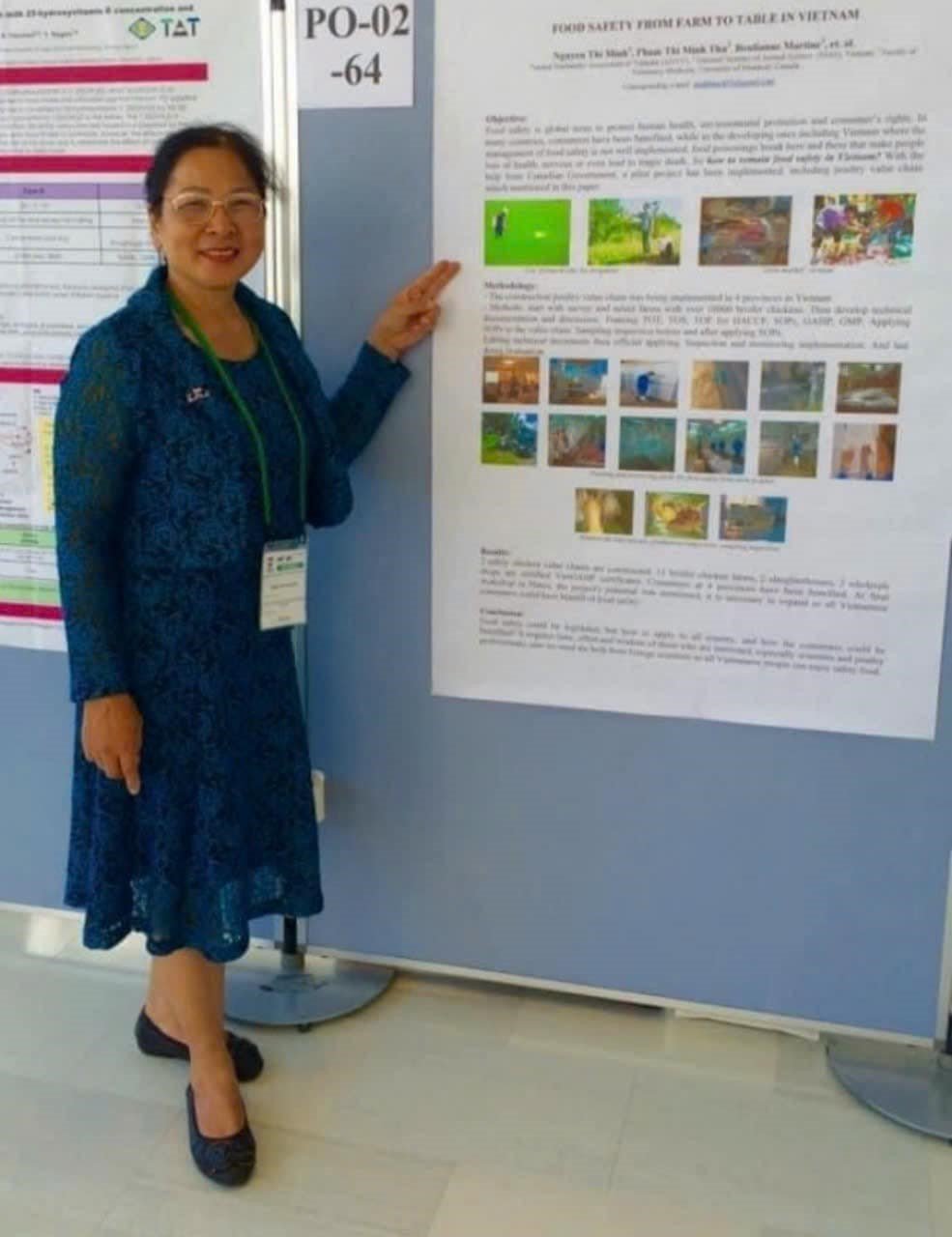
Dr. Nguyen Thi Minh presented a scientific report at Kyushu Sangyo University, Japan in 2016.
She devoted all her youth to her work. Interestingly, she is a scientist both in practice and in theory, always practicing from the farm to the laboratory, having a comprehensive view of applying research to reality. People see her rolling up her pants, wading in the fields, catching ducks like a farmer, but the next day she is in the research room or reporting at an international scientific conference.
English is a powerful tool to support Dr. in scientific research and helps her feel confident when working with foreign colleagues. In the 80s and 90s, when she saw her colleagues nodding in meetings, but struggling to speak Vietnamese or Russian when discussing with foreign partners, causing work to be hindered and ineffective, she felt motivated to learn English.
In her mind, she definitely had to know English, at least in her field of expertise and in the most common communication, so she told herself: "Just keep studying, keep speaking a lot and you'll become fluent, if you make mistakes you'll be right."
On the occasion of the agency sending her to Hanoi to learn more English to be able to work on the project, she sent her 2 children back to her hometown, and brought her 3rd child who was still breastfeeding to Hanoi to learn more. Thanks to her hard work, her English level improved, she was able to get closer to foreign colleagues, from there having many opportunities to work internationally.
After her first business trip abroad, Ms. Minh realized that if she was not good at foreign languages, she could not work in a research institution. So, instead of reading Vietnamese books every day, she switched to reading specialized English books, and even practiced reading English stories to understand how they wrote well. Her bedside book was an English book, and every night before going to bed, she almost reflexively grabbed an English book and read it for at least 15 minutes. When putting her child to sleep, she also took the opportunity to read English. There were also days when she was so tired that she fell asleep right away with a book.
Then she boldly went to the English Department of the University of Foreign Languages to ask: "I live in a remote area of Phu Xuyen, there is no foreign language teaching facility, my situation is that I have to work and raise a small child so I cannot attend a concentrated part-time course every year for several months, but now I need to learn English for work. So I respectfully request that the department allow me to study part-time by requesting materials for self-study, at the end of each semester I will take the exam. I also have some talent and like to study so I believe I can learn."
Three weeks later she received an acceptance letter. So, for four years, at the end of each semester, she took a few days off work to take exams. At the end of four years, she graduated with a bachelor's degree in English.
Many years later, with her self-taught English and research ability, she continued to participate in international projects such as: research on egg preservation methods with the University of Queensland (Australia), ISNAR project to improve research capacity in agricultural research institutes of CIAR (Netherlands), DANIDA project and SAREC project (Sweden), research project to establish a system of integrated duck-rice-fish farming for households (of the British Embassy), etc.
While studying and working in poor conditions, she completed her Master's degree and then her PhD in agricultural science. At the same time, Dr. attended many other conferences and scientific programs in: Italy (International Conference of the World Poultry Science Association WPSA), China, Thailand (duck breeding research training course at the Food and Agriculture Organization of the United Nations in Bangkok), Philippines (Conference to assess the research capacity of agricultural researchers), Japan (World Animal Genetics Conference), France (exchange of duck and goose breeding research techniques with Grimaud Frères Company, on genetic breeding), China, Taiwan (Asia-Pacific Poultry Conference), Canada (food safety project from farm to table in the chicken meat industry chain), Japan (Asia-Australian livestock conference), Belgium (ATM Tropical Animal Research Institute) ....
Throughout her life as a scientist, Dr. Nguyen Thi Minh has collaborated on research with international colleagues, conducted 20 scientific works published in international journals, published specialized books, drafted technical documents in English with foreign colleagues to teach projects, organized world waterfowl conferences, edited more than 500 scientific reports, coordinated many national and international scientific conferences, and worked as a project consultant for the World Bank and Canadian food safety projects.
Her contributions to agricultural science were recognized with the "Creative Labor" diploma and the "For the Cause of Agriculture and Rural Development" medal. She was also listed in the "Mother and Woman" Almanach, in the list of female scientists.
As a final gift of his career, Dr. Minh and his colleagues were honored to receive the Ho Chi Minh Prize and the State Prize from the State for their outstanding scientific works in science and technology that contributed to the cause of building and defending the Fatherland:
1/ Ho Chi Minh Prize: For "development of waterfowl farming in Vietnam".
2/ State Award: For "Conservation and exploitation of genetic resources of indigenous livestock in Vietnam by the Institute of Animal Husbandry in the period 2000 - 2020".
The greatest asset to leave to children is their education.
As a scientist, the greatest asset Dr. Nguyen Thi Minh left her children was an education. She believed that nothing was more precious than teaching children to cherish family relationships, express their emotions at the right time and place, accept failure to stand up and move on, endure hardships and be grateful.
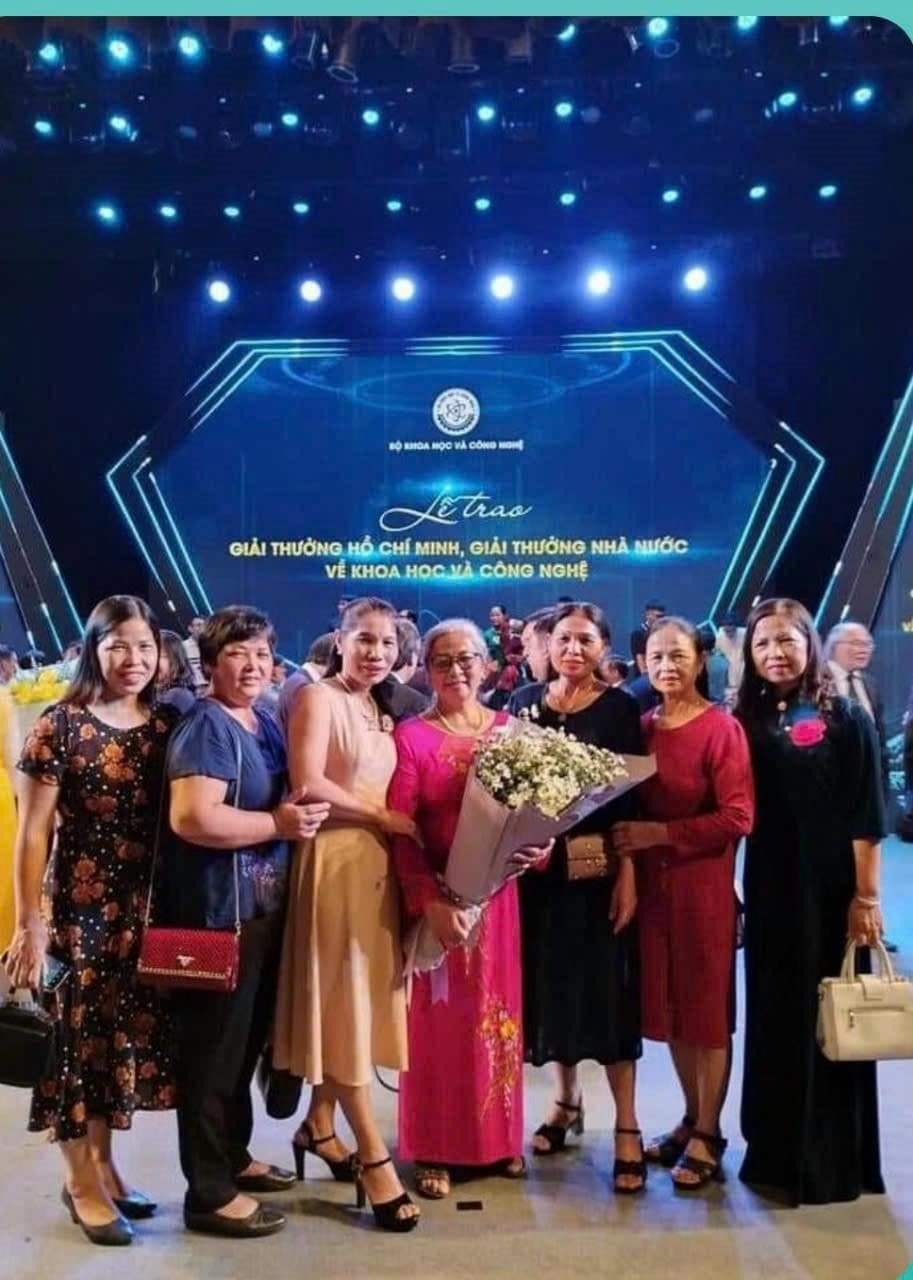
Dr. Nguyen Thi Minh received the Ho Chi Minh Prize and the State Prize for Science and Technology.
Raising children is the hardest, most tiring but also the most proud and interesting job of any mother. She consulted several educational systems, and understood that it is necessary to help children BUILD THEIR FUTURE POSITION IN SOCIETY.
Having access to English and standard educational materials, she focuses on teaching her children to be independent, improving their skills and thinking. Learning results will come as a natural result of the above basic skills, not from conquering the test set.
She also witnessed foreign children spending their entire high school years and many years after that just to study and work in the field they like, which means specializing very early. If they choose wrongly, they are willing to give up and do it again. At that time, after graduating, there is no such thing as "working in the wrong field", they are very stable and full of energy to continue to cultivate and develop their abilities. This is the inverted pyramid model in education in developed countries. That means the older they get, the more they accumulate, and the more stable they are in their profession. In raising children, she tells herself, she must be an intelligent mother, not just a loving one.
She taught her children to think and not to be complacent. She used the method of "independence with supervision" from a young age. The mother did not "do it for them" but only "did it with them". When they were young, she taught them to be independent, and as they grew older, she taught them to make their own decisions about their own work.
When the children entered secondary school, having already been educated in discipline, she began to let them manage a small family of several sisters. The 6th grader cooked, managed expenses, and supported her older sister to study for university entrance exams. The older sister tutored, tutored, and checked her younger sister’s studies…
Dr. Minh taught her children English since the 1980s. The children were first exposed to illustrated magazines on planes during their mother's business trips abroad. The children kept looking at them and were fascinated by the beautiful pictures on the magazines. Even though the children did not know any words, she showed them: this is the Golden Gate Bridge in New York, USA, this is the Taj Mahal in India..., so that the children eagerly asked why and how, then gradually explained and expanded their knowledge, stimulating their curiosity.
Gradually children have an idea of admiring what is out there in the world and form a dream of exploration.
In addition to being a researcher, she also works as an English teacher for students and district officials, and also teaches her children the first letters. Learning with her mother is both fun and related to daily life, making English less stressful and more effective for the children.
At a time of extreme poverty and deprivation, her biggest expenditure for her children was still on books and newspapers. The children read Thieu nien tien phong (Young Pioneer), Hoa hoc tro (Students' Flower), Toan toc tuoi tre (Young Mathematics)... and many books in the house. When her children were awarded national excellent students, she also invested in "rewarding" them with a large desktop computer and printer, worth 10 million, while building a spacious 2-storey house only cost 100 million. The computer for her children to study = 1/10 of the house's value.
Thanks to this "reward", the children are very active in studying, and they are also equipped with an English dictionary to learn foreign languages. She dreams that one day her children will be able to study abroad. When she had the confidence that she could do it, she looked for many different methods.
When her daughter was in her second year of university, she invested in plane tickets and took her to an international conference, considering it a "university admission reward". At the conference, her daughter was free to interact with foreign colleagues, talk about her expertise, and both stimulate her to improve her English skills and practice contact with the field at an international level.
Then she took it one step further: she ordered international magazines sent to her child's school every month, and then her friends and teachers borrowed them to read.
After so many years of teaching her children English, exposing them to the world, and nurturing their dreams, it is time for them to have their own dream of studying abroad. No competition, no cockfighting, she focuses on teaching her children to deeply understand the nature of knowledge, love learning and explore and learn everything they are curious about. So the children take their own English certificate exams, find their own scholarships, prepare their own applications, interview for studying abroad… She only declares: if you need more money to study abroad, tell me a year in advance, I will take care of it.
Currently, Dr. Nguyen Thi Minh is over 70 years old and retired, and only takes care of plants, trims flowers and writes poetry. Her children all work around the world, leaving only the two old people together every day. She hopes to see her children, eat with them, and massage her back to relieve her pain, but also hopes that her children will "spread their wings" and grow.
Source: https://toquoc.vn/tu-y-dinh-bo-hoc-vi-thuong-cha-me-khong-du-tien-dong-hoc-phi-den-nha-khoa-hoc-cham-tay-ra-the-gioi-20241020091531333.htm


![[Photo] Prime Minister Pham Minh Chinh chairs a meeting of the Government Standing Committee to remove obstacles for projects.](https://vphoto.vietnam.vn/thumb/1200x675/vietnam/resource/IMAGE/2025/10/06/1759768638313_dsc-9023-jpg.webp)

![[Photo] Prime Minister Pham Minh Chinh chaired a meeting of the Steering Committee on the arrangement of public service units under ministries, branches and localities.](https://vphoto.vietnam.vn/thumb/1200x675/vietnam/resource/IMAGE/2025/10/06/1759767137532_dsc-8743-jpg.webp)



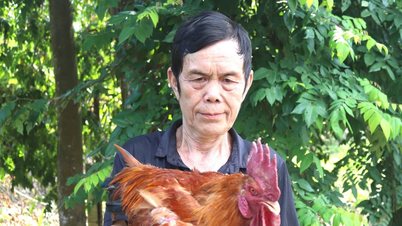

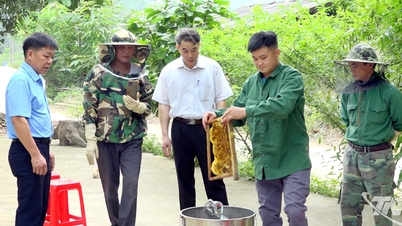

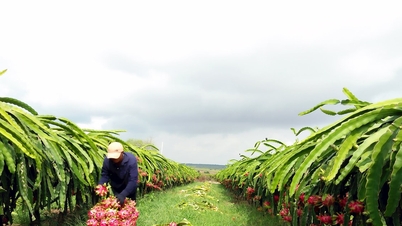

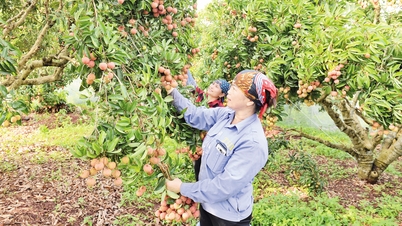

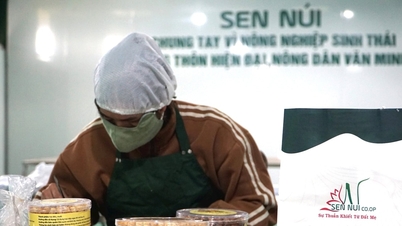
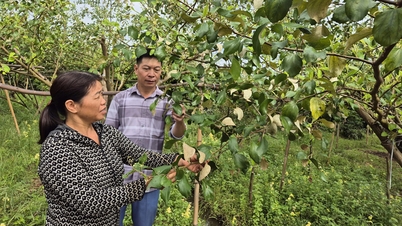
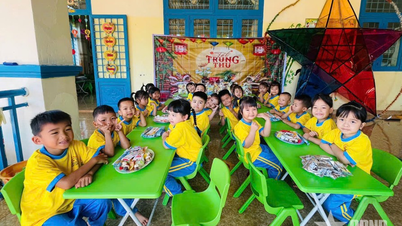



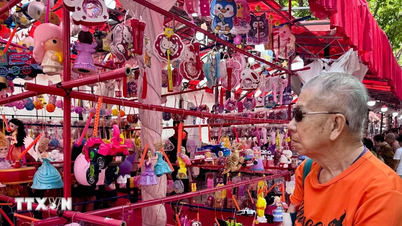

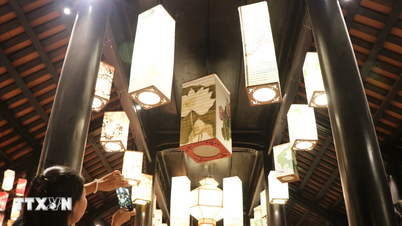






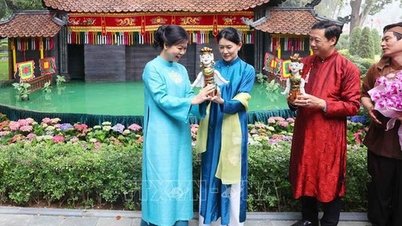
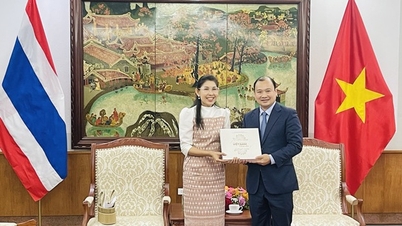
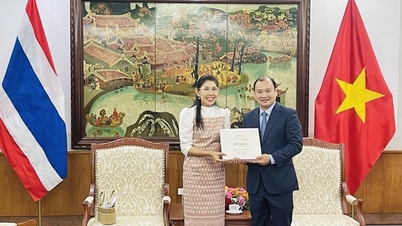


















































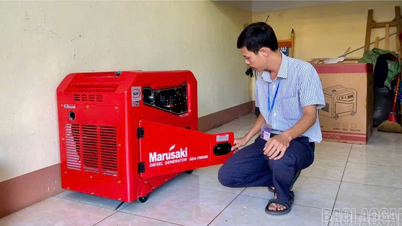


















Comment (0)